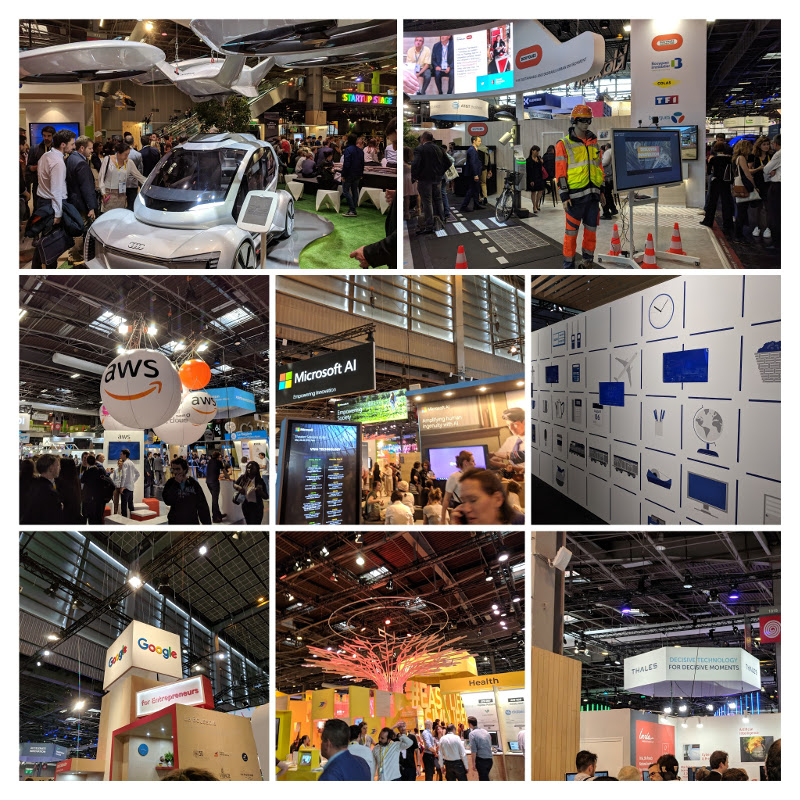VivaTech 2018 Notes & Thoughts
VivaTech, an annual technology & innovation conference in its third year, is billed as "the world’s rendezvous for startups and leaders to celebrate innovation". Held in Paris, this week it attracted 80000 attendees, 8000 European startups and dozens of large players in technology across Europe. It also featured talks from Facebook’s Mark Zuckerberg, Microsoft's Satya Nadella, and IBM's Ginni Rometty amongst many, many more. I decided to attend VivaTech to explore the wide range of industries and technologies on display. As I am graduating next year, the event gave me an opportunity to look into possible career paths as well as gain an insight into the direction that the industry is moving as a whole. Although VivaTech was more business-oriented, it also featured talks and workshops by senior engineers in the field. This mix allowed me to gain both a high-level overview of upcoming technologies, but also a more detailed insight into the lives and work of people those in these areas.
VivaTech covered topics ranging from Artificial Intelligence, Blockchain, IoT, and Quantum Computing. It also looked at many themes including Mobility, Smart Cities, Travel, African Tech scene, Startups, Future Tech, Digital Transformation, and Tech for Good. Unfortunately I was not able to see every talk I had planned to, but I'd like to summarise what I picked up from a handful of the talks below.
Day One Talks
I almost feel like I tried to do this conference on hard-mode; before attending I had packed my day with back-to-back talks. I should have known better since it's inevitable that things will run behind — which of course they did. I attended as much as I could over the two days, and below I've written my notes up and takeaways from some of my favorite talks.
Africa: The Story of Disruption & Emerging Startup Landscape
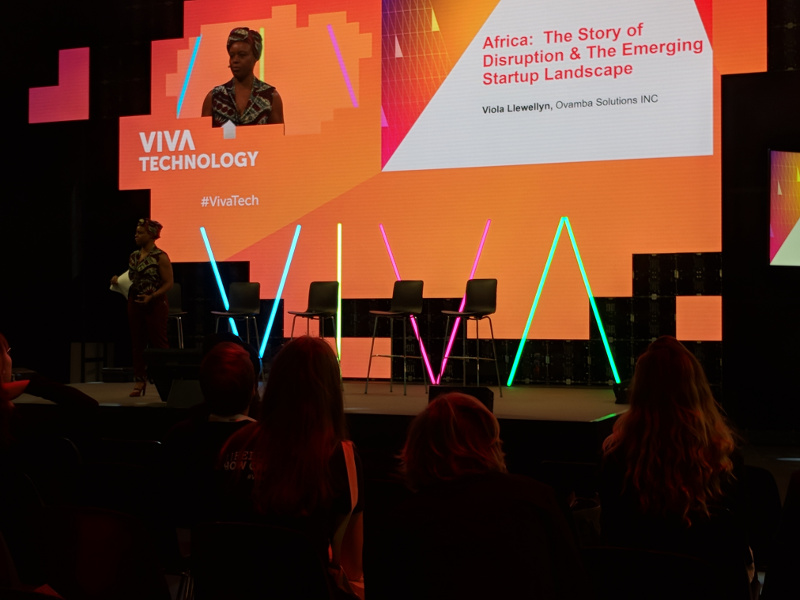 Typically when we think of the technology scene (and I am guilty of this as well) our minds jump to Silicon Valley, however there is a thriving startup and tech scene almost unnoticed in Africa. In this talk Viola Llewellyn discusses how more than anything, Africa needs to create opportunity for tech innovators rather than just an injection of capital. African innovators building apps and services is nothing new, but there needs to be a drive to push their products beyond MVPs and allow startups to reach the global marketplace.
Typically when we think of the technology scene (and I am guilty of this as well) our minds jump to Silicon Valley, however there is a thriving startup and tech scene almost unnoticed in Africa. In this talk Viola Llewellyn discusses how more than anything, Africa needs to create opportunity for tech innovators rather than just an injection of capital. African innovators building apps and services is nothing new, but there needs to be a drive to push their products beyond MVPs and allow startups to reach the global marketplace.
When Things Got All F*cked-Up
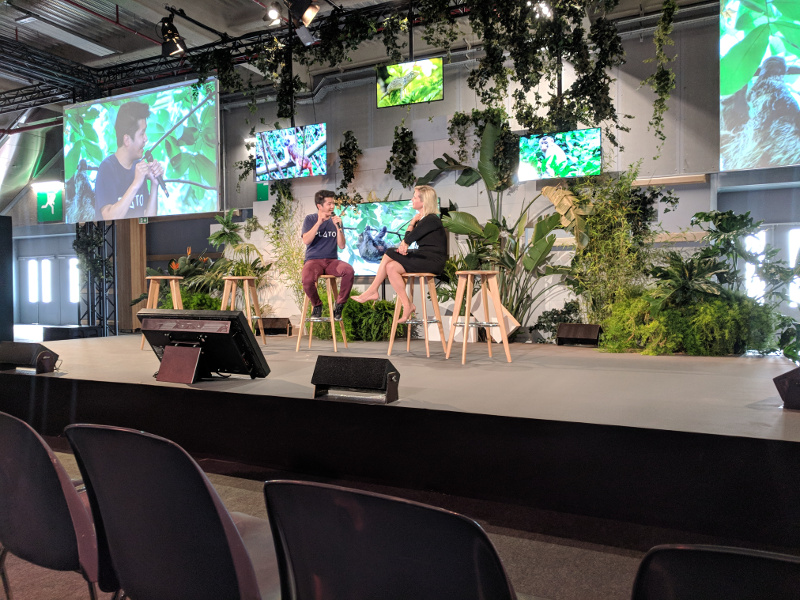 On the startup stage, Quang HOANG was interviewed by Megan Murphy, former editor at Bloomberg to talk about dealing with failure. Quang created Plato, a service to track business expenses. They started as a mobile application but quickly found that since on average people file expenses infrequently that many wouldn't keep the application on their phone. They decided it would work better to integrate their service into already well-established business tools, such as Slack & Salesforce.
On the startup stage, Quang HOANG was interviewed by Megan Murphy, former editor at Bloomberg to talk about dealing with failure. Quang created Plato, a service to track business expenses. They started as a mobile application but quickly found that since on average people file expenses infrequently that many wouldn't keep the application on their phone. They decided it would work better to integrate their service into already well-established business tools, such as Slack & Salesforce.
Fortunately this occurred at the height of chat bot craze and Plato did not struggle to achieve funding for their service, but the founders faced an issue of not being passionate about this integration. At this same thing, the constant changes in the product and lack of passion cause their team of 3 developers to quit the company, the learned that they did not have sufficient engineering leadership in place to support their team.
One thing stood out for me at this talk: when asked by an audience member what do you need to do to be resilient to failure, Quang replied that having humility was key.
Behind the Scenes of the Mobility Revolution
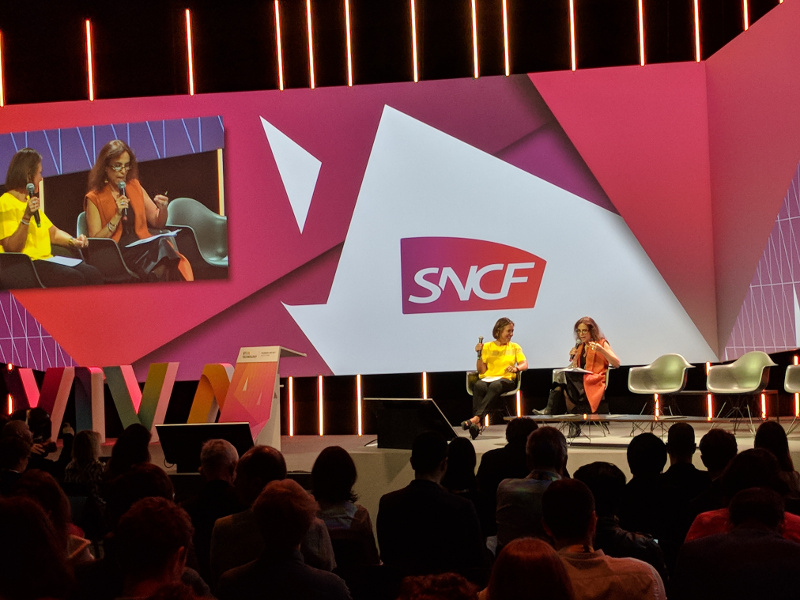 I was really looking forward to this talk from Rachel Picard CEO at SNCF. Rachel talked about various ways SNCF (The French Rail operator) are innovating. She covered what they're doing in the short, medium, and long term.
I was really looking forward to this talk from Rachel Picard CEO at SNCF. Rachel talked about various ways SNCF (The French Rail operator) are innovating. She covered what they're doing in the short, medium, and long term.
Over the course of May & June, SNCF are facing 24 days of strikes, so in terms of short term innovation they have created a chatbot which is capable of providing information to consumers during this prolonged period of disruption.
SNCF are also introducing new rolling stock to their TGV routes (High Speed). The medium term innovation revolves around these new trains which perform self diagnostics on themselves and transmit information back to maintenance depots through the day. When the train returns to the depot, maintenance crews know where needs most attention rather than manually checking everything.
Their long term innovation is very out there. SNCF sent some engineers out to collaborate with teams currently working on Hyperloop. According to Rachel, SNCF are the only transport operator to be involved at the moment.
Achieving Exponential Impact–AI in the Era of Responsible Tech
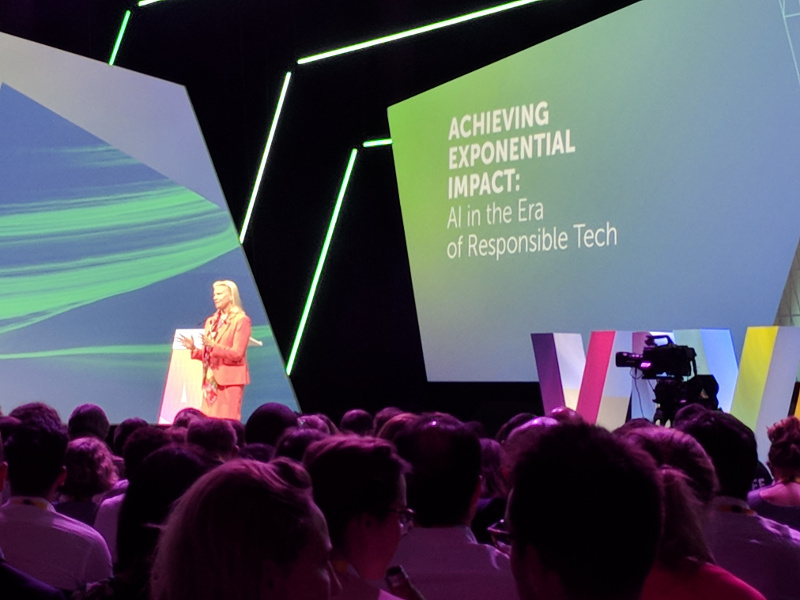 In this talk, Ginni Rometty (CEO of IBM) discussed the need for responsible AI because of the far reach and high impact that will be felt across all industries. She also commented on the fact that we should have a better understanding of the AI we are using.
In this talk, Ginni Rometty (CEO of IBM) discussed the need for responsible AI because of the far reach and high impact that will be felt across all industries. She also commented on the fact that we should have a better understanding of the AI we are using.
IBM believes, and I felt this from other talks, that the impact AI will have on the global workforce will be huge and the workforce of the future will require a new set of skills to be productive members of tomor haverow's economy. They are calling these "New Collar" jobs, and interestingly IBM are setting up initiatives to help do that training providing people with the skills that they will need.
Smarter Together for Feel-Good Cities
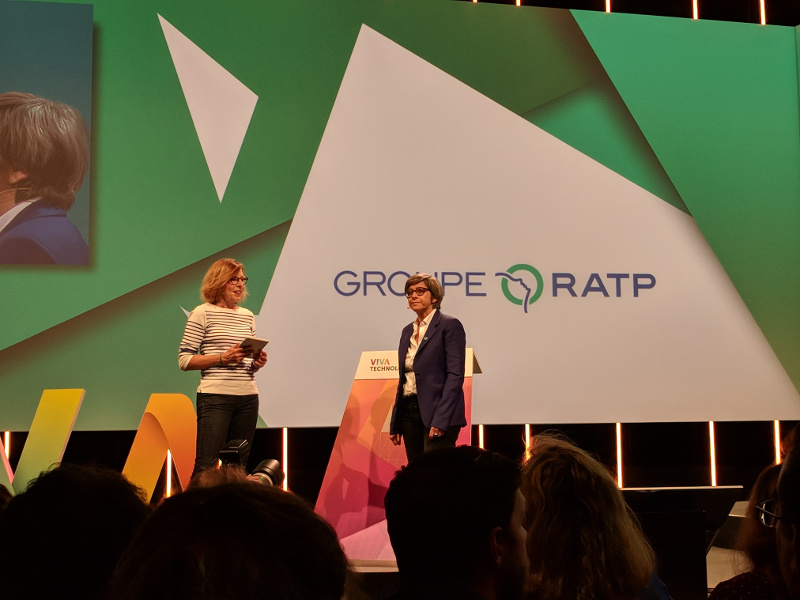 This really interesting talk from Catherine Guillouard, CEO of RATP Group, talked about the need in the future for smarter cities. Population is set to increase around the world, and urban population are also expected to grow at a faster rate.
This really interesting talk from Catherine Guillouard, CEO of RATP Group, talked about the need in the future for smarter cities. Population is set to increase around the world, and urban population are also expected to grow at a faster rate.
In order to do so, we must created an ecosystem to support operators (Transport, Utilities, Local Business) and allow them to work with each other to provide them with the data they need to operator together.
One other thing I found super interesting which Catherine mentioned very briefly was the concept of MaaS (Mobility as a Service), similar to SaaS or IaaS. Linking back to the Rachel Picard (SNCF) talk from earlier, she mentioned that young people in France can pay a flat rate for access to TGV services. It's a very interesting idea which should be explored in my opinion.
An Introduction to Quantum Computing
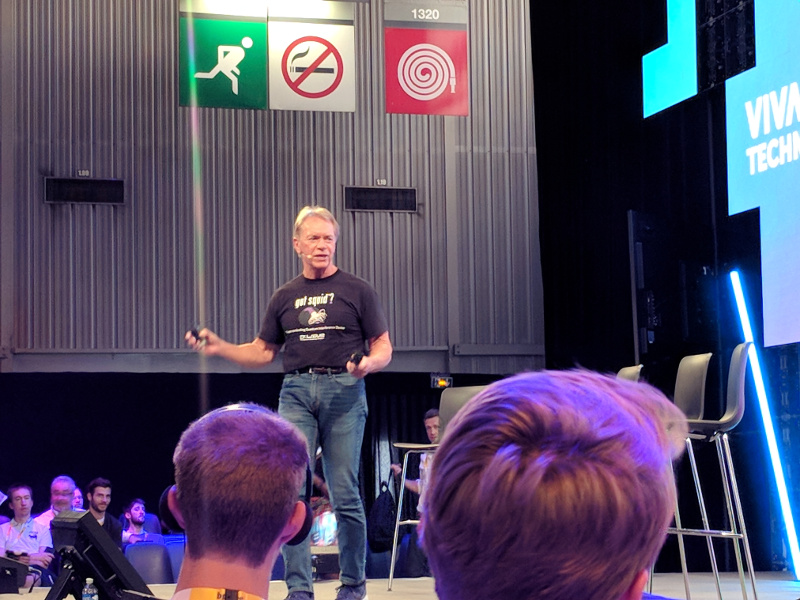 Bo Ewald, President of D-Wave, offered an introduction to Quantum and how it can be used in industry. Without getting too technical, in the classical computers which we own today there are bits which can either be one or zero. This is the fundamental base unit which has been used since its invention and everything we do today still relies on this very basic idea.
Bo Ewald, President of D-Wave, offered an introduction to Quantum and how it can be used in industry. Without getting too technical, in the classical computers which we own today there are bits which can either be one or zero. This is the fundamental base unit which has been used since its invention and everything we do today still relies on this very basic idea.
With Quantum Computers, this concept changes to Qbits where it can be in a state of both one and zero, or any combination between. This kind of power allows for computation of really interesting problems. In collaboration with other partners, Daze was able to perform optimization on traffic flow in China, the best ad placement on mobile, prediction of health analysis among many other problems.
Pictured below is IBM's Quantum Computer. Interestingly, the processor for these computers isn't relatively large but since the computation needs to perform at near absolute zero, most of the equipment is to keep things cold.

Day Two Talks
Lessons learned from the previous day, I felt much more organised and focused about what I wanted to see. As a result I was able to get good notes on the talks since I wasn't trying to rush around the expo hall.
Data Disrupted or Data Disruption?
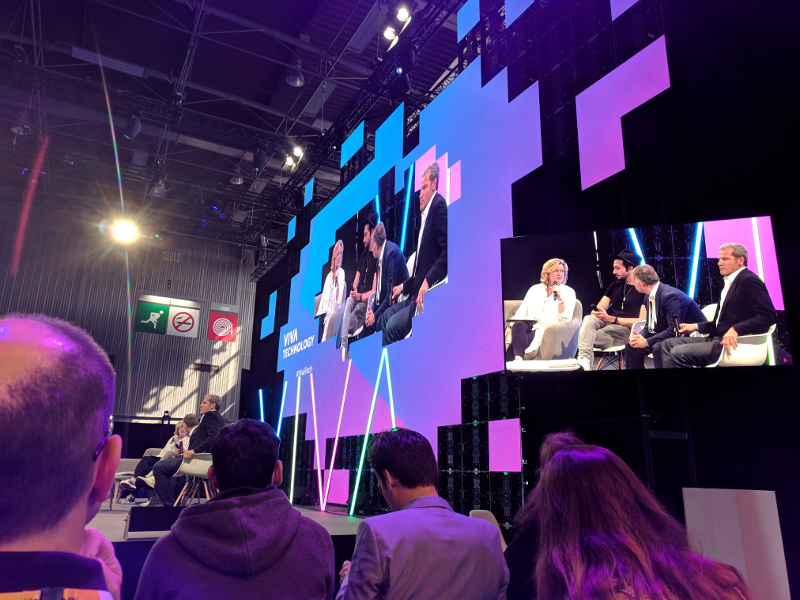 Day Two of the conference was May 25th, and those who work in tech will know it's GDPR Day. It featured an all-star panel to talk about GDPR's impact on tech. Rand Hindi, CEO of Snips, expressed the opinion that privacy should be built into products and applications and simply trying to add it on top is a route to failure. He also believes this is huge opportunity for the EU to lead the way for privacy and data ethics, a viewpoint I agree on.
Day Two of the conference was May 25th, and those who work in tech will know it's GDPR Day. It featured an all-star panel to talk about GDPR's impact on tech. Rand Hindi, CEO of Snips, expressed the opinion that privacy should be built into products and applications and simply trying to add it on top is a route to failure. He also believes this is huge opportunity for the EU to lead the way for privacy and data ethics, a viewpoint I agree on.
Thierry Brun, the GDPR Ambassador for IBM Watson, believes that GDPR will hinder small businesses because of the cost of becoming compliant. Snips CEO disagreed with this statement, saying that large business (referring to Google and Facebook) will find it most difficult and the reduction in data collection will directly impact their business model.
Rand also mentioned that any company shutting down as a result of GDPR should not exist if it cannot become complaint. On a related note, if you've not seen the GDPR Hall of Shame blog, then you should.
Starting Up With Equality
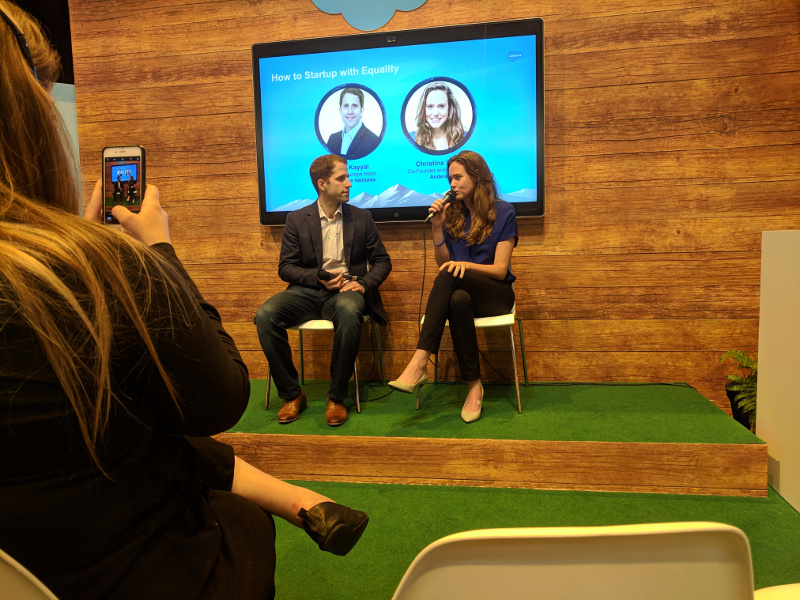 This was a fantastic fireside chat between Christina Saas (President of Andella) and Alex Kayyai (Salesforce Europe) to discuss how Andella invests and trains software developers from a diverse background by investing in untapped talent in Africa and gets them into the global tech world.
This was a fantastic fireside chat between Christina Saas (President of Andella) and Alex Kayyai (Salesforce Europe) to discuss how Andella invests and trains software developers from a diverse background by investing in untapped talent in Africa and gets them into the global tech world.
Andella found themselves with over 2500 applications to their program in Nairobi, but what they discovered was a severe lack of woman applying. When reviewing why this was the case they noticed some really obvious things; 1. They had no female recruiters, so they employed some to find more woman for their programme and 2. They began to run all female recruitment cycles which they found helped since there was this psychological safety.
Christina also stated that we need to be able to talk properly about diversity inside our companies and also that hiring people who are not qualified but doing so to meet equality targets is actually a step backwards and does more harm.
Finally, a point which really stuck with me from Christina. Investing in software developers in Africa and training them to world class levels will impact the local tech scene in the long-term as African CEOs will return to their roots and care about their local communities.
The Future of AI
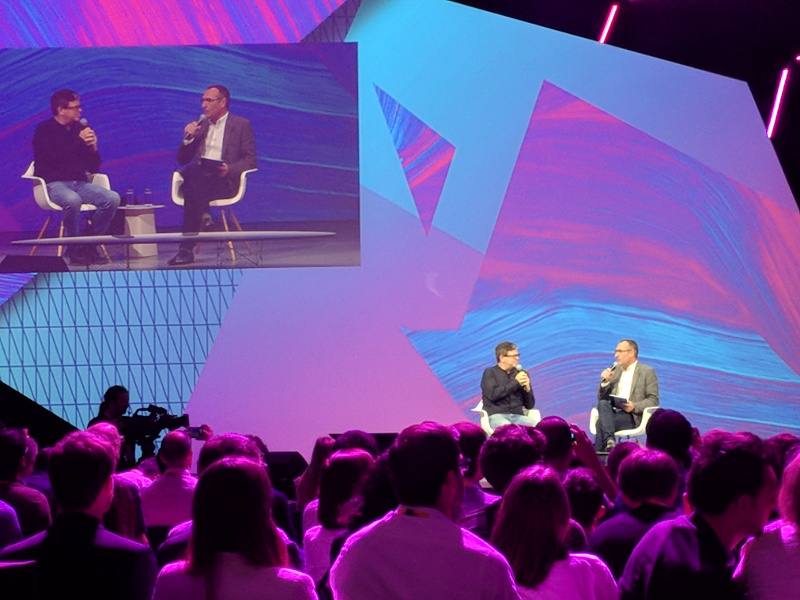 Here, Yann LeCun who is the Chief AI Scientist at Facebook, talked about AI today and where it is needs to progress in the future. According to Yann, the AI we have today is no smarter than rats and the machines of today are only capable of learning in very narrow domains and do not have any common sense.
Here, Yann LeCun who is the Chief AI Scientist at Facebook, talked about AI today and where it is needs to progress in the future. According to Yann, the AI we have today is no smarter than rats and the machines of today are only capable of learning in very narrow domains and do not have any common sense.
In the future, AI shouldn't need thousands of pieces of training data, and we should be reducing the volume of data required - which swings back around to GDPR quite nicely. When pressed about how we cannot justify how algorithms are making decisions, Yann replied that not all decisions really need an explanation. With today's technology, we can pinpoint what influences a decision by some algorithm but in reality it should only be reserved for life critical, legal or health reasons due to the computation involved.
Yann also stated that he doesn't believe in the idea of the singularity or that one day AI will take over the world. Yann explained that there doesn't seem to be a link between the need to dominate and intelligence, and that we only need to look at our politicians to see that this is the case — which received a round of applause from the audience.
Artificial Intelligence: The Reality and the Possibilities by Microsoft
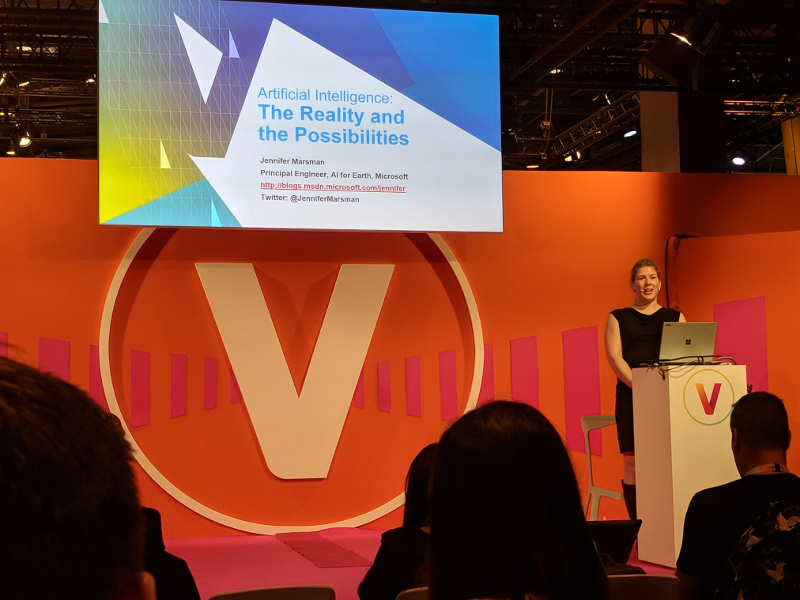 Next was a fascinating workshop by Jennifer Marsman, Principal Software Engineer for Microsoft's AI for Earth group. Jennifer started by explaining that Machine Learning is a tool for AI which uses maths to prove things about data. For supervised machine learning, the most commonly used, in some dataset there will be two key things. Labels, which is the thing you are trying to predict based on Features, the other data in the dataset. Weights can be placed on features based on their value to the label.
Next was a fascinating workshop by Jennifer Marsman, Principal Software Engineer for Microsoft's AI for Earth group. Jennifer started by explaining that Machine Learning is a tool for AI which uses maths to prove things about data. For supervised machine learning, the most commonly used, in some dataset there will be two key things. Labels, which is the thing you are trying to predict based on Features, the other data in the dataset. Weights can be placed on features based on their value to the label.
Following a brief overview of Machine Learning, Jennifer discussed how Microsoft are using AI for good. They were able to track migrations of giraffes based on the unique spot patterns on their sides. In India, they used AI to determine when the best time was to plant peanuts, which are typically planted during festival time but they found that those who planted when the AI predicted was the optimal time had a 30% higher yield. They also build a trap which used AI to detect mosquitoes based on the beats per minute of their wings, they then analysed the blood for the mosquitoes to determines what diseases were in the area.
Closing Remarks
I set a few goals for this conference, I didn't really want to use it as an opportunity to network since I currently don't have a startup so that felt like a waste of time. I wanted to go and be a sponge, soaking up as much information as I could. I wanted to be able to leave this conference with a clear idea of where I am heading next and I feel like I have accomplished this.
I want to focus of Machine Learning and using technology for good, I want to be truly conscious of equality and diversity. I want to position myself into a place where in the future I could be back here as a startup.
I want to challenge myself to look at the bleeding edges of technology, notably where AI is going and how we can harness quantum computing. I am still a Blockchain skeptic, that will likely not change, I refuse to believe that has a notable future.
To avoid the length of the post stretching on forever I've cut out some talks from day one, these including discussions around Blockchain, using DNA as storage and being a young entrepreneur in the African Tech Scene. If you're interested in learning more, ping me through one of the methods in my footer.
